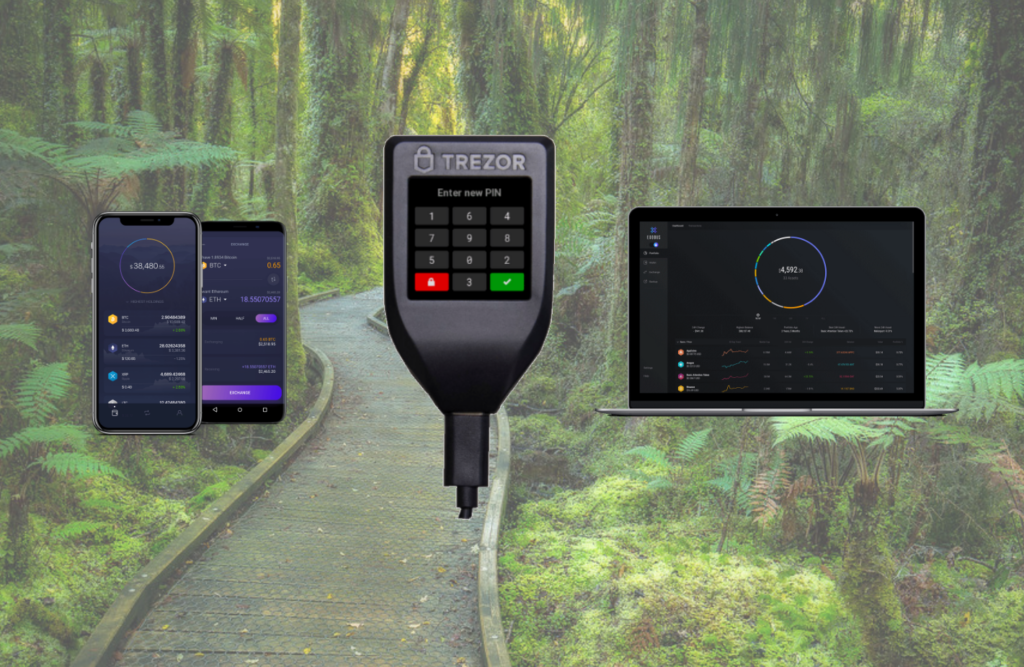If you’re at the beginning of your crypto journey, you’ve probably figured out by now that in order to own Bitcoin (BTC) and crypto – you need a secure place to store your assets in.
This is the role of your crypto wallet. With dozens of good options ranging from Trezor to Ledger, MetaMask to Exodus, what wallet in particular is best suited to your crypto needs?
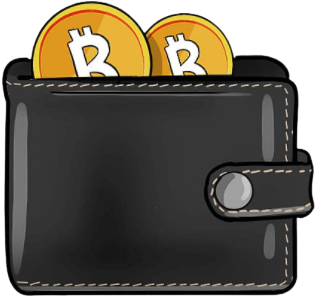
What is a Crypto Wallet?
A cryptocurrency wallet is a digital tool that allows you to store your Bitcoin, Ethereum, and other cryptocurrencies – acting somewhat like a personal encrypted bank account.
You use your wallet to receive payments in and send transactions out, acting as your heart of operations for interacting with the crypto world. Wallets are the most critical tool you will ever use in crypto – so taking care and forethought during the wallet selection process is imperative. For more info on how crypto wallets work, visit our main crypto wallet guide.
How to Know Which Wallet is Best For you?
As there are 7 main kinds of crypto wallet (mobile wallets, desktop wallets, hardware wallets, exchange wallets, web wallets, browser extension wallets and paper wallets), knowing which one is right for you can be identified by understanding your crypto goals.
For example, ask yourself the following questions:
- Do I plan to hold crypto short term or long term? Days, weeks, months, years, decades?
- How much crypto do I want to own? What will be the initial NZD balance of my wallet?
- As an individual, do I have technical skills? Or should I go for the easiest solution?
With this all considered, (and if you’re like most New Zealanders) – you probably want the most secure option, that’s simple to use, best suited to holding crypto over the long term.
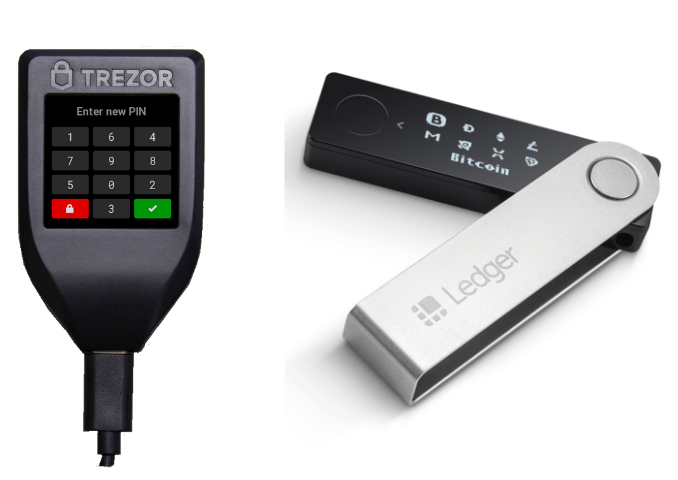
Bite the Bullet and Get a Hardware Wallet
Although they cost between $150 – $300 NZD, hardware wallets are simply the most ideal wallet for NZ crypto investors. Here at Cryptocurrency NZ, we strongly believe you should cut right to chase and acquire the most secure wallet off that bat, like the Trezor or Ledger.
There’s a decent chance you’re going to be holding crypto for the long haul, so investing a couple hundred bucks to bulletproof your holdings is an idea you can’t go too wrong with.
Hardware wallets, as explained in our dedicated guide, are physical cryptocurrency wallets that hold your private keys in an offline fashion, meaning they are immune to remote hacks or other attempts to empty you of your hard earned money. A hardware wallet is like an interactive USB stick, which you must plug into your computer and physically hold down a button to sign off any outbound transactions from your wallet accounts. Hardware wallets are well known as the apex of crypto security, and you can pick one up pretty easily in NZ.
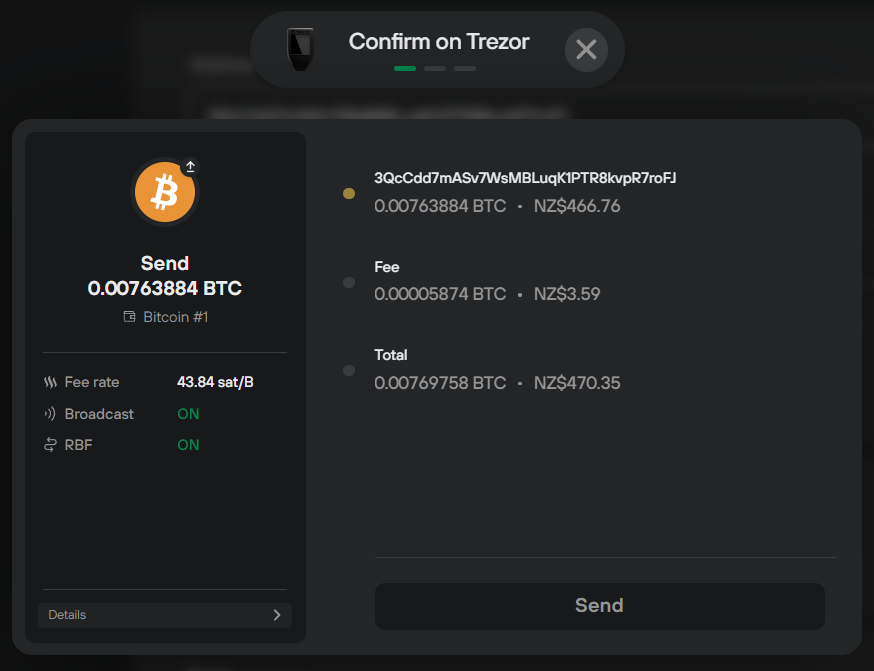
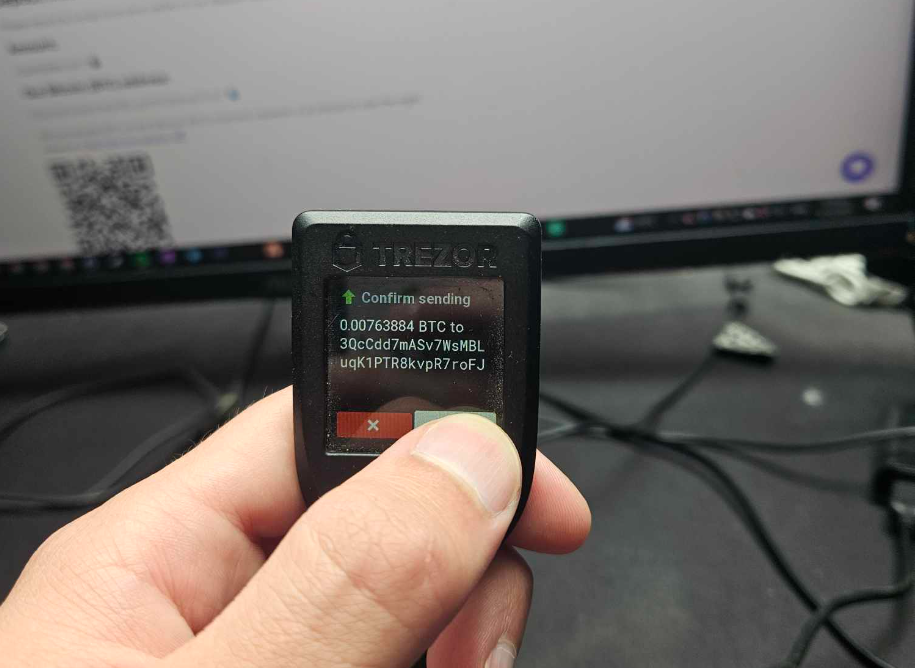
Visit our hardware wallets NZ guide to learn how to buy a hardware wallet in New Zealand.

Trusted Crypto Software Wallets - Exodus Wallet
Now, if you’re not willing to spend $200 – $300 NZD on a hardware wallet, the next type of crypto wallet that you may want to consider is a trusted software wallet like Exodus wallet.
Exodus allows you to still store, send and receive crypto, however instead of being a physical device like a hardware wallet – you access it on a computer program on your PC.
Exodus official website: https://www.exodus.com/
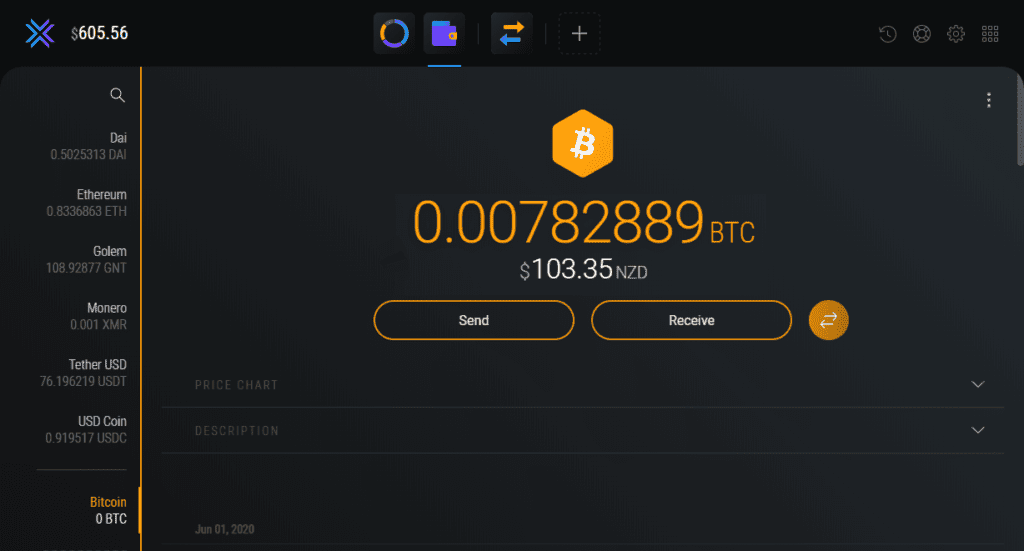
For more info, visit Cryptocurrency NZ’s dedicated Exodus guide.
Exodus is free, easy to use, safe to operate, and is trusted by tens of thousands of Kiwis including the Cryptocurrency NZ team. It was my first wallet ever six years ago, and I’ve never had any issues with it. Just make sure to follow our NZ crypto wallet backup guide to make sure to properly backup your access details, including your password, private key and 12 word phrase. The only major critique we have is that Exodus is not open-source.
Exodus has never had a documented security breach, it’s multicurrency (meaning you can store all kinds of crypto in your one Exodus wallet), and it’s known to be very user friendly.
Other Options for Storing Your Crypto in NZ
Across the world, there are thousands of crypto wallets available for your use. However we recommend sticking only to the most trusted, reputable options to ensure your wallet security. You can store crypto on exchanges, but we recommend against this.
Here in crypto, we have a saying; ‘not your keys, not your crypto‘, and crypto exchanges hold your private keys for you. This means if an exchange is hacked, such as with what happened to FTX, Cryptopia, and Mt Gox, you will most likely never see your coins again.
We also generally recommend against using mobile crypto wallets, or only using them to store small amounts of coin to be spent on the day to day. Treat them as real wallets, it only takes you leaving your phone around unlocked for a bad actor to then run off and transfer all of your crypto to their wallet. You must also be aware of $5 wrench attacks.
Otherwise, it’s very common for Kiwis to use web extension wallet like MetaMask, for interacting with Web3, decentralized applications and decentralized exchanges in NZ.
However just be sure to only store small amounts in these wallets when you’re not using them, and store the main bulk of your crypto in your hardware wallet or software wallet.
Cryptocurrency NZ Final Verdict
Although there’s a multitude of wallets at your disposal, we’d highly recommend biting the bullet and spending $200 – $300 NZD off the bat and acquiring a hardware wallet.
They are at this point, the benchmark in crypto wallet security, and anything less than a hardware wallet now feels somewhat insecure from my own perspective. The shear fact that a transaction can not be executed unless you physically hold down a button helps provide confidence to newbie crypto investors. If you’re planning for your wallet to hold tens of thousands in NZD on them, an initial $200 – $300 overhead really isn’t much.
We hope you enjoyed this guide, and feel free to contact us if you need any help. You can also get personal 1-on-1 assistance from yours truly through Crypto Consulting NZ.
Good luck with your crypto interests, investments and activity. Bring on the 2024 bullrun.
